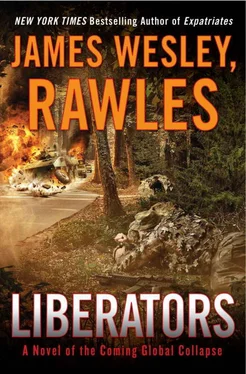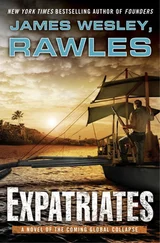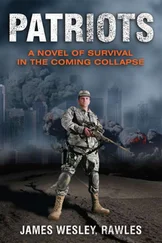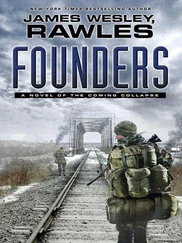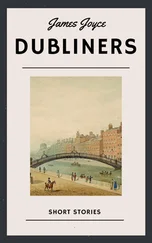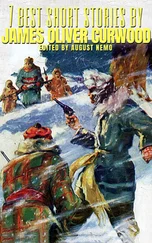“Well I didn’t say that a publisher was paying me to write a book. I’ve been writing it freelance, and I’ve got to eat, so I cut firewood.”
“I see. Well, have a safe trip home to BC. Be very cautious, and keep your tank full. Gas is becoming hard to find.”
• • •
Just north of the Canadian side of the city on Highway 17 (the Trans-Canada Highway) Ray crossed the boundary of Lake Superior Provincial Park. Watching the kilometer markers closely, he stopped at a pullout just past kilometer post 27. The spot was deserted, with only the occasional car passing by.
He pulled a folding entrenching tool out from behind his seat and his GPS receiver out of the glove box, and stowed both of them in a rucksack. After locking up his pickup and checking the tires on both the pickup and the trailer—as was his habit each time he stopped on long trips—he walked into the woods following a deer trail. About 120 yards in, he came to a large and familiar stump that had a distinctive protruding splinter that was left standing straight up where the first cut had met the felling cut. Backing up to the stump, he took nine paces south. This brought his feet directly in front of a pie-pan-diameter flat rock—one of just a few rocks that were within view, and the only one of its size. Flipping it over, he began to dig. Just a few inches down, his entrenching tool struck something that made a hollow sound. He pulled a plastic-wrapped ammo can out of the hole. Originally designed to hold flares, the twenty-inch-long steel can had been repainted with brown Rustoleum paint.
Peeling off the plastic, Ray was pleased to see that the can had acquired just a bit of surface rust in the fourteen months that had passed since he’d last inspected it. Opening the can, he found a plastic bag containing $640 in Canadian dollars. Beneath that was a translucent white plastic tube containing seventeen one-ounce silver Canadian Maple Leaf coins.
Wrapped in an oily rag and several layers of plastic bags was an Inglis Mk I* Hi-Power 9mm pistol. The gun’s utilitarian gray phosphate finish was in fine shape, with no sign of corrosion.
He spent several minutes loading all of the magazines for the pistol with hollowpoint ammunition. He put all but one of them in their pouches. The last magazine—a twenty-rounder—was inserted into the pistol’s grip. He loaded the chamber and, pointing the pistol into the woods, he gently lowered its rowell hammer (since it lacked a modern decocking lever) to quarter cock. He wrapped the pistol up again in the oily rag and tucked it in the large right outer pocket of his jacket. In the opposite pocket, he put a magazine pouch that held three loaded thirteen-round magazines. All of the other items went back into the ammo can, which he resealed. He tossed the plastic wrapping in the hole but kicked in just enough dirt to cover the plastic. He didn’t bother to completely refill or camouflage the hole, because he didn’t intend to return to it.
His grandfather had left the Inglis Hi-Power mostly unchanged from its wartime service configuration, except that its lanyard ring had been removed, its magazine safety taken off to lighten the trigger pull, and it had been retrofitted with checked rubber Pachmayr grips. Along with it were seven thirteen-round magazines, three twenty-round magazines, several magazine pouches, and a wooden buttstock with an attached leather holster. Both the gun and the magazines were unregistered and therefore considered contraband in Canada.
He reached Thunder Bay just after 2:00 P.M. By 2:10 he was parked across the street from the Royal Bank of Canada (RBC) branch on Hodder Avenue. The bank didn’t close until 4:00 P.M., but there was a long line at the door. He switched into his other coat, which had a hood. After thirty-five chilly minutes he reached the door, where a security guard was enforcing a “one out, one in” policy to prevent overcrowding in the lobby.
Once he was finally inside, there was another long queue to reach the teller windows. His wait in that line lasted twenty minutes, where he overheard some irate customers attempting to withdraw more than the new thousand-dollar limit. “Today a thousand won’t buy a shopping trolley full of groceries!” one man shouted.
When he finally reached a teller window, Ray first wrote a check for one thousand dollars, leaving just $126 remaining in his account. He was handed ten one-hundred-dollar Canadian bills. They were all the later post-2011 type, printed on a polymer paper. Then he exchanged the last of his U.S. currency into Canadian dollars. He was surprised to see that it now took nearly two U.S. dollars to buy one Canadian dollar.
Ray then asked to access his safe-deposit box. He was told that there would be at least a ten-minute wait, and that because of the current banking emergency, no bank accounts could be closed, and no deposit box rental agreements could be terminated. He explained, “I just need to get what’s in my box.”
At 3:30, after having his box rental card checked against his signature on his passport, he was ushered into the vault room. He handed his key to the custodian, a pimply-faced young man who looked no more than twenty years old. After both his key and the custodian key were turned, the tray of Ray’s oversize deposit box was pulled out.
The custodian asked, “Would you like a booth?”
“No.” Ray unlatched the box and swung the lid open. Inside was a black Conn brand trumpet case and nothing else. Ray pulled out the case and gave a nod.
As he put the box back into its slot, the custodian quipped, “Must be a valuable instrument.”
Ray nodded. “Yes, it’s quite precious to me.”
When he got back to the truck, Ray placed the trumpet case in the passenger seat and changed back to his other jacket. The weight of the pistol and the loaded magazines was comforting.
When he had driven ten miles out of Thunder Bay on Highway 17, Ray pulled the pickup and trailer onto the off ramp for a disused provincial highway rest stop, open only in summer months. He looked around and could see no traffic in either direction.
He snapped open the latches on the trumpet case and lifted the lid. The top of the case was crammed full of green plastic twelve-gauge 000 buckshot shells. He began pulling these out and piling them on the truck seat. Beneath them were the two plastic-wrapped halves of a Winchester Model 12 takedown riot shotgun. The barrel had long before been shortened to nineteen inches. He pulled these halves out, and more shotshells tumbled down into the bottom of the case. (He had filled every available space in the case with extra shells.)
After taking another look up and down the road to ensure that he wasn’t being observed, Ray removed the plastic wrapping and pulled the gun’s magazine tube forward. He joined the two halves of the gun together and gave the fore end a half turn, connecting the barrel’s and receiver’s interrupted threads. Then he slid the magazine tube back into the receiver, gave it a twist, and popped the magazine retainer pin in place. The gun, now assembled, was a handy thirty-three inches long. Holding down the action release, he cycled the action three times to test it. It felt right, so he flipped the gun over and fully loaded the magazine, pumped the action, slid the safety button to the right, and added one more shell to top off the magazine. He draped a poncho over the gun to keep it out of plain sight. Ray let out a sigh of contentment, now feeling properly armed for his road trip west.
Driving around the northern periphery of Lake Superior was uneventful, aside from seeing one spectacular wreck, the victim of a lake-effect snow flurry the previous day, which had brought visibility down to just a couple of car lengths. An Audi had smashed into a guardrail and flipped over. As Ray drove by, a tow truck driver was rigging a line to attempt to extricate the car. Two RCMP officers were standing by, holding C8 carbines. That struck him as odd. Why was there any need to have rifles out at the scene of a car wreck? Had there already been looting this far from Detroit?
Читать дальше
